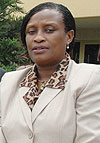National
Regional bloc advised to streamline governance
The East African Community (EAC) has been advised to streamline issues of governance if it is to achieve a full political federation.

Beatrice Kiraso
